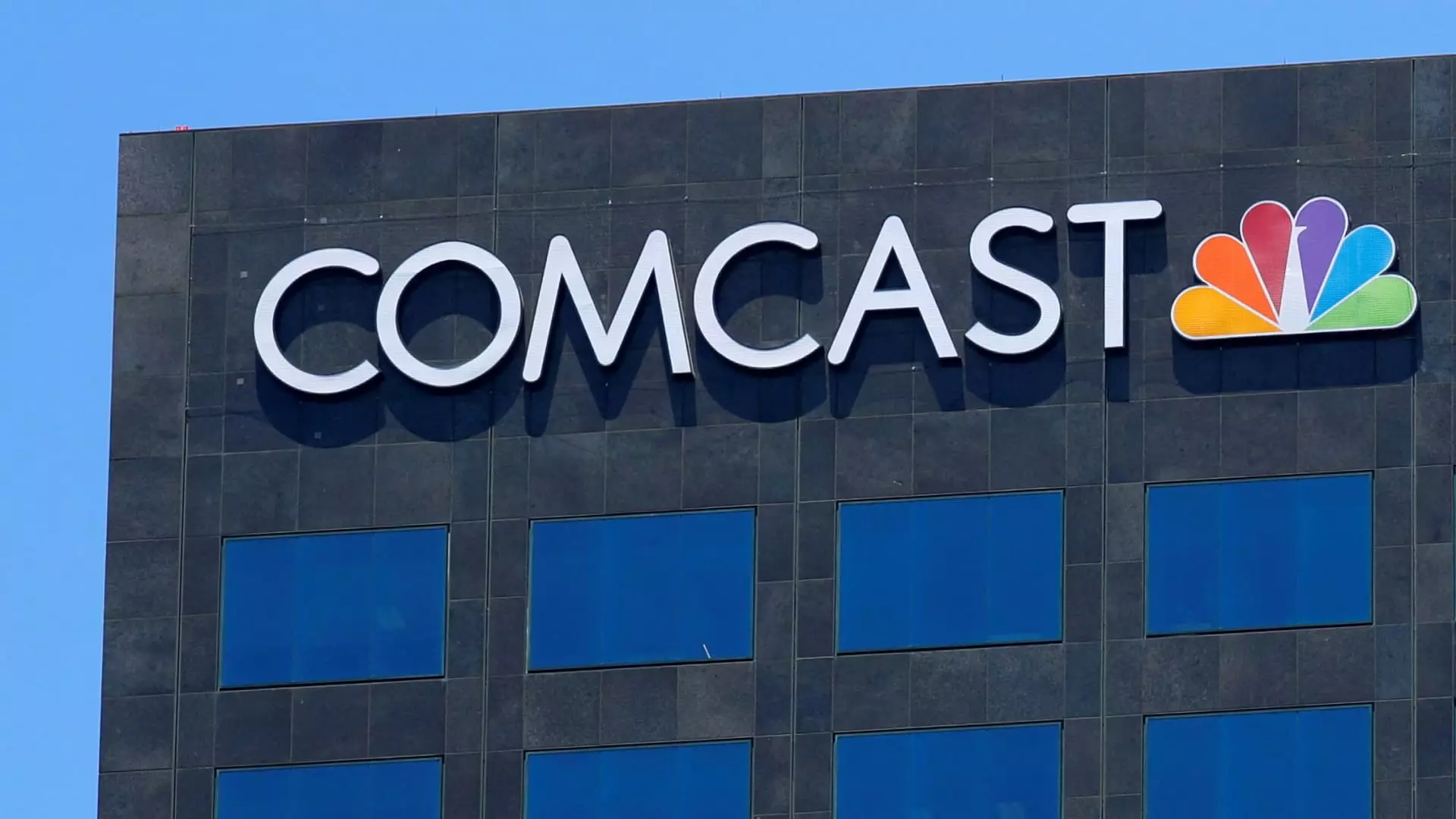Comcast, a titan in the telecommunications and media industry, is poised to undergo a significant transformation with the impending spinoff of its cable network channels. According to recent reports from CNBC, this strategic move is set to be realized within the next year, with formal announcements expected imminently. The rationale behind this development is multifaceted, stemming from both the evolving media landscape and the ongoing shifts in consumer behavior, particularly the trend toward cord-cutting and the rapid growth of streaming platforms.
At the helm of this newly-formed entity will be Mark Lazarus, who currently serves as the chairman of NBCUniversal’s media group. His leadership is expected to drive the operations of the spinoff, ensuring a focus on innovation and adaptability amidst an increasingly competitive market. Anand Kini, NBCUniversal’s Chief Financial Officer, will take on the role of CFO and COO for the new organization, bringing a wealth of financial expertise to the table.
While Comcast CEO Brian Roberts will retain a voting interest in the new company, he will not participate in its day-to-day operations or board governance. This separation marks a departure from traditional corporate structures, allowing for a more agile and responsive company that can react to the industry’s changing tides.
The spinoff is designed to be tax-free, a strategic advantage that will allow for a smooth transition. One of the intriguing aspects of this separation is the potential it creates for future mergers or acquisitions. By establishing a standalone entity, Comcast is poised to explore opportunities for collaboration with other networks or even attract private equity interest. This maneuver signals Comcast’s recognition of the increasingly fluid landscape of the media industry, where adaptability can be as valuable as a strong content portfolio.
Despite the challenges posed by cord-cutting, traditional TV networks continue to perform robustly in terms of revenue. Comcast recently reported a nearly 37% increase in media segment revenue for the third quarter, primarily due to the Olympics. Even absent such marquee events, organic growth persisted, underscoring the cash-generating potential of established networks.
Media executives have long maintained that traditional networks, despite their declining subscriber numbers, remain vital revenue streams through advertising and content distribution. This financial foundation empowers Comcast to make bold strategic moves, such as this spinoff, while maintaining confidence in the profitability of their core offerings.
In additional personnel developments, Comcast is also restructuring its leadership at NBCUniversal. Donna Langley, who has been the chief content officer, will step into the role of chairman of NBCUniversal Entertainment and Studios. Meanwhile, Matt Strauss is set to lead the newly formed NBCUniversal Media Group, overseeing crucial areas like sports and ad sales.
Cesar Conde will continue to guide NBCUniversal News Group, while Adam Miller has been appointed as the Chief Operating Officer, indicating a keen awareness of the critical nature of operational leadership in a rapidly evolving media environment.
Comcast’s decision to move forward with this spinoff is not merely a reaction to immediate market trends but reflects a comprehensive strategy to position the company favorably for the future. The spinoff emphasizes a commitment not just to legacy cable networks like E!, Syfy, and USA, but also a recognition of the potential for growth in direct-to-consumer offerings, like NBCUniversal’s streaming platform, Peacock.
As more consumers deviate from traditional cable subscriptions in favor of streaming services, Comcast’s focus on enhancing Peacock is a prudent step. By streamlining its cable networks, the company aims to leverage both its robust cable presence and the growing demand for digital content.
Comcast’s strategic initiative to spin off its cable networks represents a calculated response to the ongoing transformation of the media landscape. By embracing change through leadership restructuring and financial maneuvering, Comcast is preparing to navigate the complexities of the future while maximizing value for its shareholders.



Leave a Reply